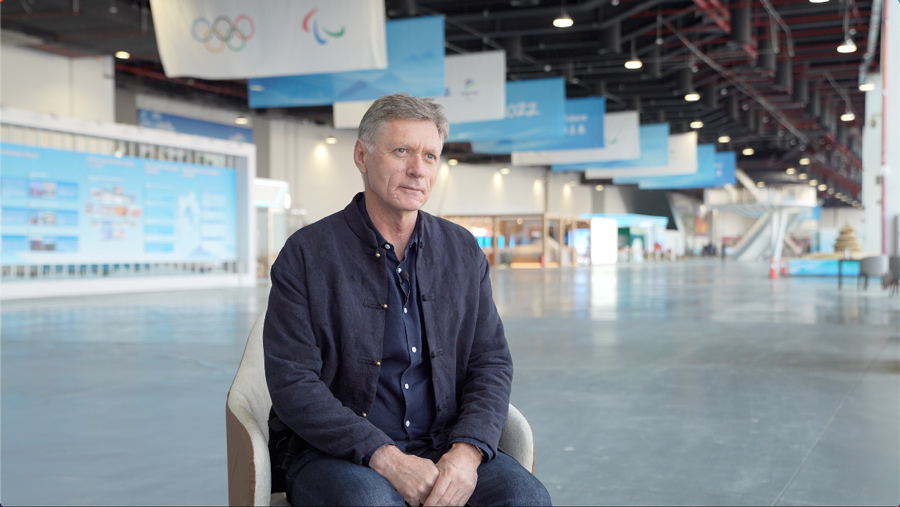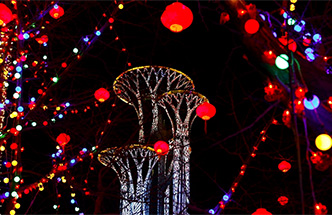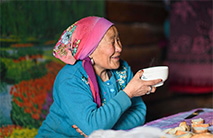China makes excellent effort to ensure media coverage for Beijing 2022: former IOC media operations chief
China has done an excellent job to ensure that media personnel can gain access to all the facilities and services they need during the 2022 Beijing Winter Olympics and Paralympics (Beijing 2022), said Anthony Edgar, a senior consultant for Beijing 2022, in an exclusive interview with People's Daily Online.
Edgar, who has long devoted himself to the Olympic Games, worked for the International Olympic Committee (IOC) for 18 years. He used to be the head of Media Operations and Chair of the Press Committee at the IOC before his retirement in 2020. "I've loved doing it because it's been a way for me to balance my love of sport and also a love of media," he said. "The role of media operations is to ensure that media can do its job of reporting the Olympic Games, not just in the venues, but also in the city and the country that is hosting the Olympics," said Edgar. "China has done an excellent job with that."
During the interview, Edgar stressed the role that the media plays during the Winter Olympics, citing the seventh President of the IOC, Juan Antonio Samaranch's words: "Press are the arbitrators of successful Olympic Games."
"The media is actually the biggest constituent group at any Olympic Games being it summer or winter," he said. "The reporting of the media, be it positive or negative, is how the world will perceive the Olympic Games."

Anthony Edgar, a senior consultant for the 2022 Beijing Winter Olympics and Paralympics (Beijing 2022), receives an exclusive interview with People's Daily Online at the Main Media Center for Beijing 2022. (People's Daily Online/Xu Zheng)
Edgar predicted that about 13,000 media personnel would register for Beijing 2022. "Because of COVID-19, the number will be a little lower," he said. "For sure, there are a lot of media from around the world, coming to Beijing, covering these Games."
He noted that there would be all sorts of precautions in place to make sure that Beijing 2022 runs safely amid the COVID-19 pandemic. Last month, the IOC, the International Paralympic Committee (IPC) and the Beijing 2022 Organizing Committee jointly published the second edition of the Beijing 2022 Playbook, featuring updated COVID-19 countermeasures, including vaccination requirements, customs entry requirements, and health monitoring and isolation during the Games.
"What is happening here is that a bubble is going to be developed, and the Olympics will be competing within the bubble," said Edgar, referring to China's closed-loop management system wherein participants during Beijing 2022 can only leave the “bubble” if they exit the country or undergo quarantine.
Within the closed-loop "bubble," Games participants traveling to Beijing (and domestic staff in regular contact with other Games participants) will only be allowed to circulate in dedicated vehicles between permitted destinations (such as individual Games venues, accommodation facilities, and dining facilities). Also, every participant inside the "bubble" is required to have daily screening tests for COVID-19 and must wear a face mask at all times.
"It is a unique idea. There'll be no interaction between the public who are coming to the competitions and the media or the athletes," he said.
Edgar has been to Beijing nearly 40 times, and he is impressed by the city's lasting Olympics legacies. According to Edgar, the large number of venues for Beijing 2008 created a space "almost like a city in itself," with facilities benefiting the local people in Beijing.
"You've got people coming here [Olympic Forest Park] every day, every single night. There are people out in the streets even when the temperature is ten degrees below zero," he said. "It is not just the venue itself, but it's about the community that is created there."
"It [the Olympic Games] is not just about finding Olympic champions, it is about providing facilities and services for the community," he said.
Edgar also mentioned that the venues for Beijing 2022 would contribute to China's "great vision" of engaging 300 million people in winter sports, citing that Beijing 2022 will make winter sports facilities affordable and accessible to the Chinese people.
Except for the Beijing competition zone, Beijing 2022 has two additional competition zones, Yangqing and Zhangjiakou, about 75 kilometers northwest of Beijing's city center and approximately 180 kilometers northwest of Beijing, respectively. These three competition zones are connected via a high-speed rail and several Olympic priority lanes, significantly reducing the time needed to reach each of these competition zones. With a design speed of 350 km/h, the high-speed rail has reduced the travel time between Beijing and Zhangjiakou from over three hours to just 47 minutes. After Beijing 2022 comes to an end, many of the venues will open up for public use.
"They [the Olympic venues in the Zhangjiakou and Yanqing zones] are not out of reach. It is not like taking 4 to 5 hours to get to the venue; you jump on a train and go up for the weekend and come back at night," he said. "All venues will be used not just by the elite athletes, but by anyone who wants to participate in sports at any level."
For Edgar, one of the unique things about Beijing 2022 is that Beijing is the world's first dual Olympic city, which has equipped China with many experienced staff who have already “run one of the most successful Olympic Games” in modern history.
"I know China's participation is going to be very strong," said Edgar, “the competition is going to be spectacular, and it's going to be a great Olympic Games for China."
Photos
Related Stories
- UN issues stamps to celebrate Beijing 2022 Winter Olympic Games
- Overseas Chinese in Moscow hold activities to welcome Beijing 2022 Winter Olympics
- 2022 Winter Olympic mascots attract visitors in Beijing
- Chinese designer expresses enthusiastic support for Beijing 2022 Winter Olympic Games through stone paintings
- A closer look at Beijing Winter Olympic medals
Copyright © 2022 People's Daily Online. All Rights Reserved.










